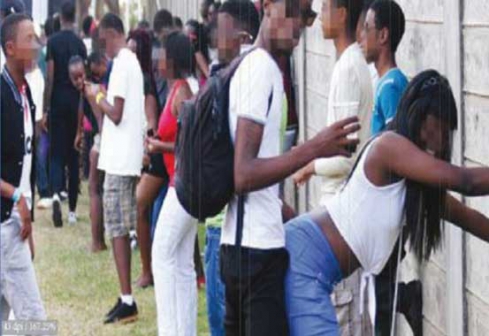
Peddlers are progressively devising ways of making it easier for students to access drugs. They, for instance, provide their houses located near campuses as safe havens for students to use the drugs and receive orders and payments via their mobile phones. The dealers know every nook and cranny of the campus neighbourhoods and have established good relationships with students and other residents who watch out for the police and tip them off. If and when caught, the peddlers easily bribe their way to freedom and continue operating unhindered.